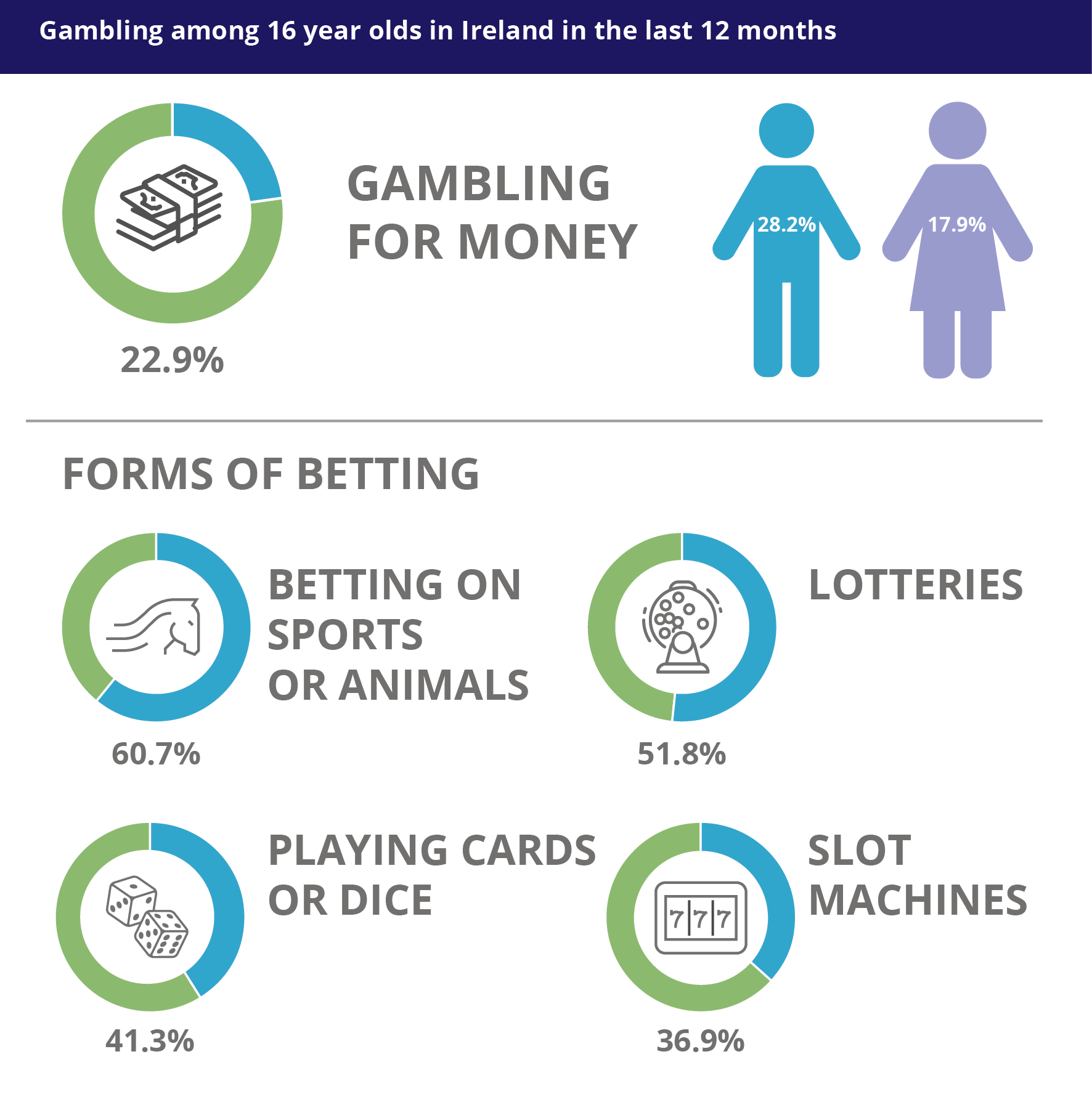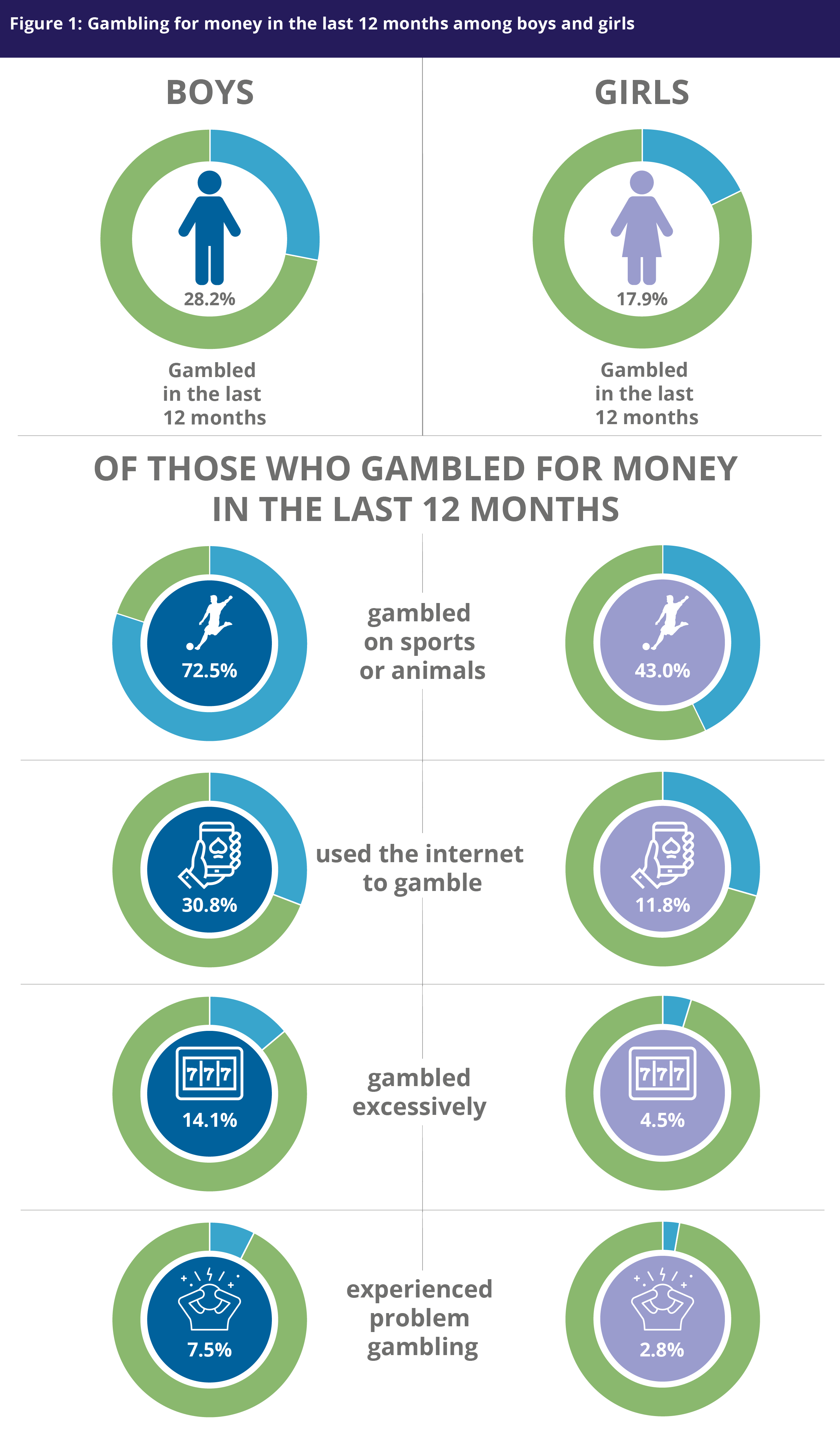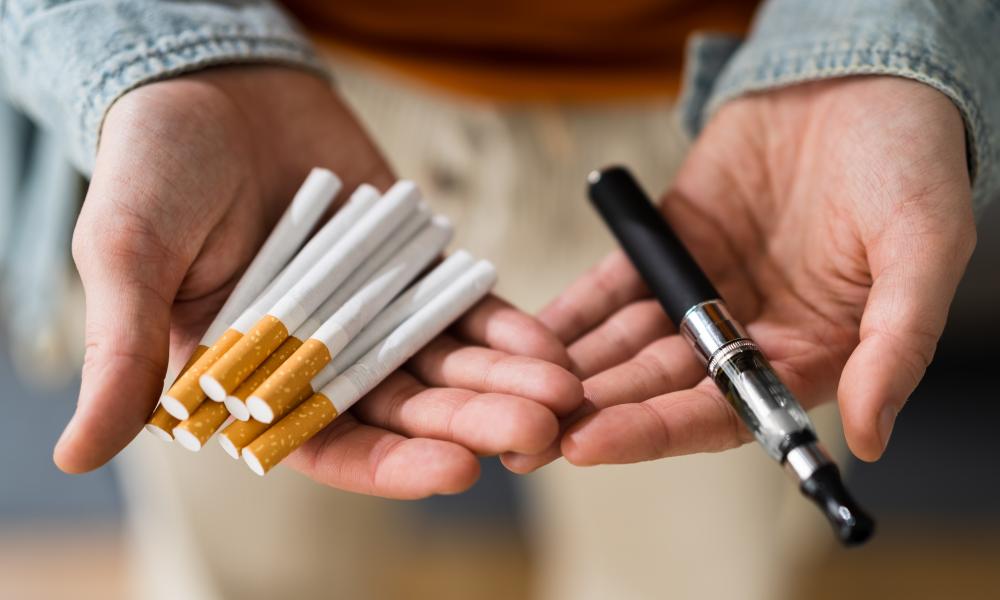
Almost a quarter of 16-year-olds in Ireland gambled for money in the previous year, according to a new report, which found the odds of gambling stacked against boys compared to girls.
The report, ‘Children and gambling – evidence to inform regulation and responses in Ireland’, presents data from Irish secondary school students, collected through the European School Survey Project on Alcohol and Other Drugs (ESPAD).
The joint report published by the Institute of Public Health (IPH) and TobaccoFree Research Institute Ireland (TFRI) analysed 1,949 survey responses from Irish 16-year-olds, who were asked about their gambling activities in 2019.
This short video summarises the key takeaway messages from the webinar launch, which considered the report findings, policy implications, and future research.
The Europe-wide survey, which runs every four years, examines whether teens use slot machines, play cards or dice, lotteries (including scratch cards and bingo) or bet on sports or animals, whether they do so online or whether they experience problem or excessive gambling.
The survey also considers other factors, such as, sociodemographic and family characteristics, social media use, gaming behaviours, substance use, relationships and self-harm.

Overall trends
Overall 22.9% of 16-year-olds in Ireland reported gambling for money in the previous year, but this rate was higher among boys at 28.2% compared to 17.9% for girls.
Of the teens who gambled for money in the previous year, 10.3% experienced excessive gambling, while 5.6% met the criteria for problem gambling.
Children were considered to be experiencing problem gambling if they reported feeling the need to lie to important people about how much money they gambled and if they felt the need to bet more and more money.
Of those who gambled in the previous year, 23.1% reported engaging in online gambling, which was significantly associated with betting on sports and animals and associated with both excessive gambling and problem gambling.
The report also found that 16-year-olds who gambled online had a 4.2-fold higher odds of excessive gambling.
The analysis further estimated that around 21.3% of 16-year-olds, who gambled in the previous year, were getting into difficulty with controlling their gambling - 19.0% felt the need to bet more money and 8.1% reported lying to important people about how much money they gambled.
The findings highlight the need to protect children from direct and indirect gambling harms, as well as the need to collect and monitor data on gambling behaviours among children.
Of all 16-year-olds who gambled in the previous year:
- 59.7% were boys
- 21.3%% were getting into difficulty with controlling their gambling
- 19.0% reported feeling the need to bet more and more money
- 8.1% reported lying to important people about how much money they gambled.
Risk of harm for boys and girls
The report found that boys exhibited different gambling behaviours than girls and had higher odds of excessive gambling.
Approximately 80% of 16-year-olds, who gambled in the previous year and were experiencing excessive or problem gambling, were boys.
Of the 16-year-olds who gambled in the last 12 months, it was more common for boys to gamble online, bet on sports or animals, and gamble excessively.
Among those who gambled in the previous year, excessive gambling was around three times more common among boys than girls and problem gambling was over two and a half times more common among boys than girls.

Commenting on the findings, IPH Director of Policy, Dr Helen McAvoy, said: “This report shows that when 16-year-olds in Ireland engage in gambling, quite a few of them run into difficulty. This is particularly the case for betting on sports and betting online and for boys. Gambling rates among this age group in Ireland are around the European average, highlighting the need for a public health approach to reduce gambling harms.”
IPH Public Health Development Officer, Dr Ciara Reynolds, said: “We hope the report findings will help to inform ongoing gambling reform in Ireland. The report highlights the need for further research on children and gambling in national surveys to build on our evidence and produce more focussed approaches to protect children from gambling-related harm.”
Director of Social Research at TFRI, Professor Joan Hanafin, added: “The link between nicotine use and gambling is such that 16-year-olds who had smoked or used e-cigarettes were twice as likely to gamble for money, and this applied to both boys and girls.”
About the report
The report, ‘Children and gambling – evidence to inform regulation and responses in Ireland’ is based on a secondary analysis of the European School Survey Project on Alcohol and Other Drugs (ESPAD) and was carried out by Dr Helen McAvoy, Dr Ciara Reynolds, Salome Sunday, Professor Joan Hanafin and Professor Luke Clancy.
Supports
The following supports and services are available to anyone affected by gambling in Ireland:
Contact Gamblers Anonymous https://www.gamblersanonymous.ie/
Extern Problem Gambling https://www.problemgambling.ie/
The HSE also details supports available to children and young people here - https://www2.hse.ie/mental-health/services-support/supports-services/


